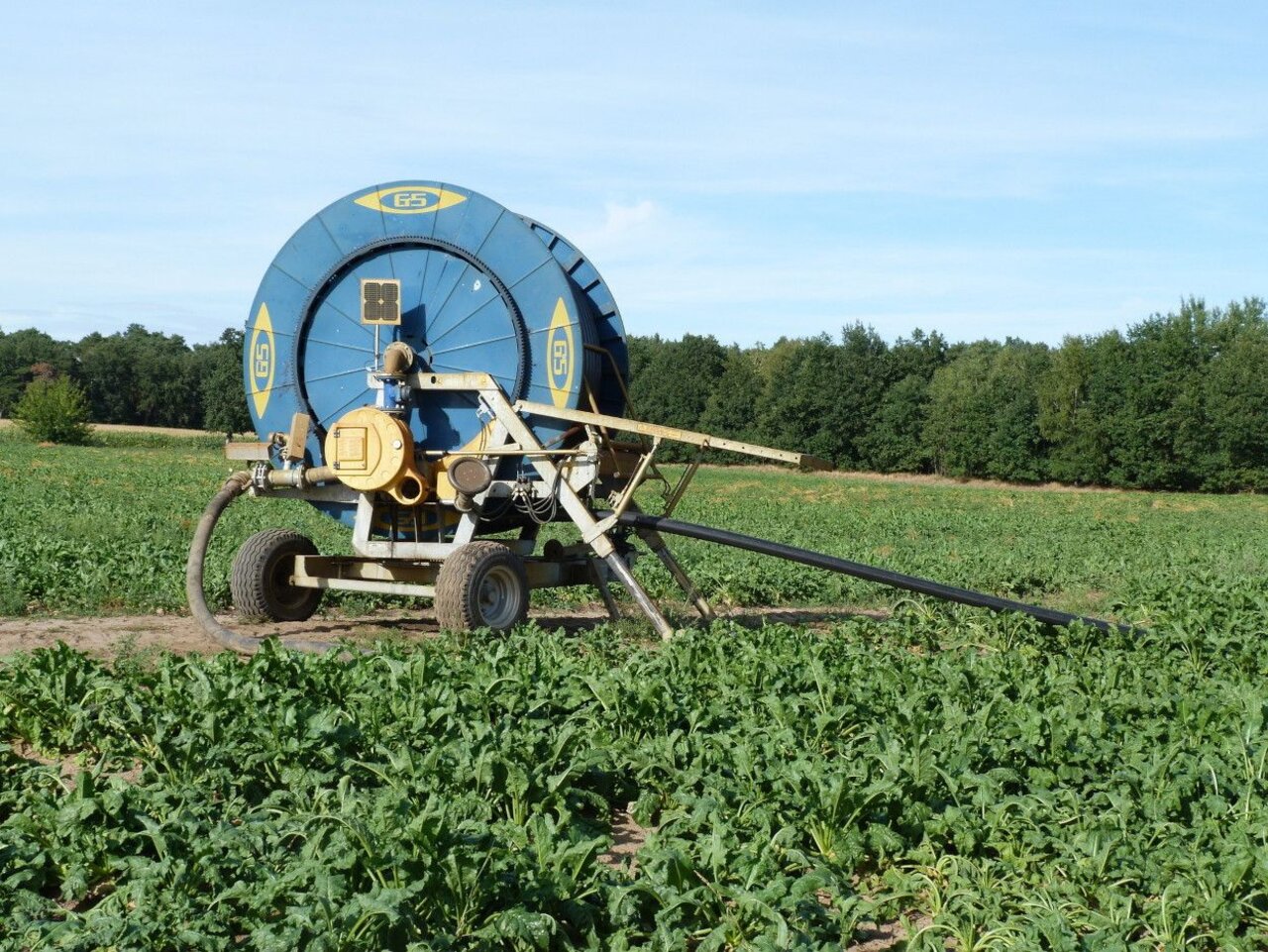Project
Quantification of Regional Irrigation Demands for Agriculture in Bavaria

Quantification of Regional Irrigation Demands for Agriculture in Bavaria
Due to climate change agricultural irrigation demand in Germany is increasing. How high is the regional irrigation demand in Bavaria and how will it develop in the future?
Background and Objective
In addition to an increase in average temperatures, changes in precipitation are already becoming apparent as a result of climate change. Precipitation heights are increasingly varying. A shift in precipitation times from the summer half-year to the winter months is discernible. The climate forecasts assume a trend in this respect, as a result of which the availability of water for plants and for agriculture will decline during the growing season. Agricultural production in Germany is related to both the temporal and quantitative availability of water. Due to climate change, water is becoming a scarce commodity and increasingly a limiting production factor for agricultural products.
Up to now, there has been little spatially comprehensive analysis of the future development of the irrigation demand in Germany. The Irrigation demand describes the amount of additional water that is necessary to supply agricultural crops sufficiently. The parameter is used to quantify the amount of water used for irrigation purposes and to estimate the supplementary water demand for current and future developments in the absence of comprehensive data and statistics on the actual water used for irrigation purposes by agriculture.
The aim of the project is to develop a model approach that allows for a realistic and area-wide estimation of the future regional irrigation demand for intensive agricultural crops under climate change conditions at the municipal level across Bavaria.
Target Group
Policymakers, agricultural producers, advisors, regional water associations, chambers of agriculture, interested professionals and the general public, science
Approach
The project is to build on the previous studies of the Institute for Rural Areas of the Thünen Institute and to consider a possible transferability to other regions in Germany.
The project is structured in three work packages:
- Development of a model to quantify regional irrigation needs - further development of an approach used in an earlier study of Irrigation Demands In North-Rhine-Westphalia.
- Discussion of the methodology and the model results with experts and representatives in Bavaria. On this basis: Validation and adjustment of the model parameters.
- Calculation of the regional irrigation demand for the ex-post period (1991-2020) and under consideration of regional climate projections (2021-2050).
Data and Methods
The data basis for the developed model approach is spatial data with a daily temporal resolution. These include: observed climate data (potential evapotranspiration and precipitation), location specific information on soil type or the water storage capacity, as well as land use data. In order to be able to model the climate conditions of the future, regionalised ensemble climate projection data of the German Weather Service is used for the RCP 8.5 scenario. The land use information is linked to crop-specific data. These include the plant coefficient as a value for mapping the crop-specific water demand, growth stages of the crops over the course of the year and the respective soil moisture optimum.
The regional cultivation of the agricultural crops are derived from land use information in the IACS database (Integrated Administration and Control System). A total of 21 crops are investigated grouped by arable farming, vegetable growing and special crop cultivation.
Our Research Questions
Our research questions:
- What is the regional irrigation demand of agriculture in Bavaria for the ex post period 1991-2020?
- How will the regional irrigation demand develop until 2050, taking climate change into account?
Results
In the project, the irrigation demand of Bavarian agriculture is calculated for the periods 1991-2020 (Ex-Post) and 2021-2050 (Future). Considering all the crops in a Bavarian-wide comparison of the two observation periods, the average irrigation demand rises. Increases in the mean annual total irrigation demand of 19 % are to be expected by the year 2050. Differentiated according to land use classes, Bavaria's irrigation demand will increase by 19% in arable farming, 23% in vegetable growing and 10% in the cultivation of special crops. However, annual fluctuations in climatic conditions can lead to significant deviations from the average trend.
The model developed in this study accurately represents the irrigation demand and highlights current irrigation regions. The model is a practical method to estimate the regional irrigation demand and will be further developed in a new project of the Institut (LAWAMAD - Agricultural Water Management Germany)
Project brief: Bernhardt JJ, Rolfes L, Henseler M, Kreins P (2022) Quantification of regional irrigation demands for agriculture in Bavaria. Braunschweig: Thünen Institute of Rural Studies, 2 p, Project Brief Thünen Inst 2022/32a, DOI:10.3220/PB1659520516000
Thünen-Contact

Involved Thünen-Partners
Funding Body
-
Bundesland Freistaat Bayern
(national, öffentlich)
Duration
10.2018 - 2.2021
More Information
Project status:
finished
Publikationen zum Projekt
- 0
Bernhardt JJ, Rolfes L, Henseler M, Kreins P (2022) Ermittlung des regionalen Bewässerungsbedarfs für die Landwirtschaft in Bayern. Braunschweig: Thünen-Institut für Lebensverhältnisse in ländlichen Räumen, 2 p, Project Brief Thünen Inst 2022/32, DOI:10.3220/PB1659520173000
- 1
Bernhardt JJ, Rolfes L, Kreins P, Henseler M (2022) Ermittlung des regionalen Bewässerungsbedarfs für die Landwirtschaft in Bayern. Braunschweig: Johann Heinrich von Thünen-Institut, 138 p, Thünen Rep 96, DOI:10.3220/REP1657029754000
- 2
Bernhardt JJ, Rolfes L, Henseler M, Kreins P (2022) Quantification of regional irrigation demands for agriculture in Bavaria. Braunschweig: Thünen Institute of Rural Studies, 2 p, Project Brief Thünen Inst 2022/32a, DOI:10.3220/PB1659520516000

![[Translate to English:] [Translate to English:]](/media/_processed_/2/0/csm_LV_Bei_Hornburg_Quelle_Johanna_Fick_neu_da89674833.jpg)
![[Translate to English:] [Translate to English:]](/media/_processed_/2/0/csm_LV_Bei_Hornburg_Quelle_Johanna_Fick_neu_3aae309567.jpg)





